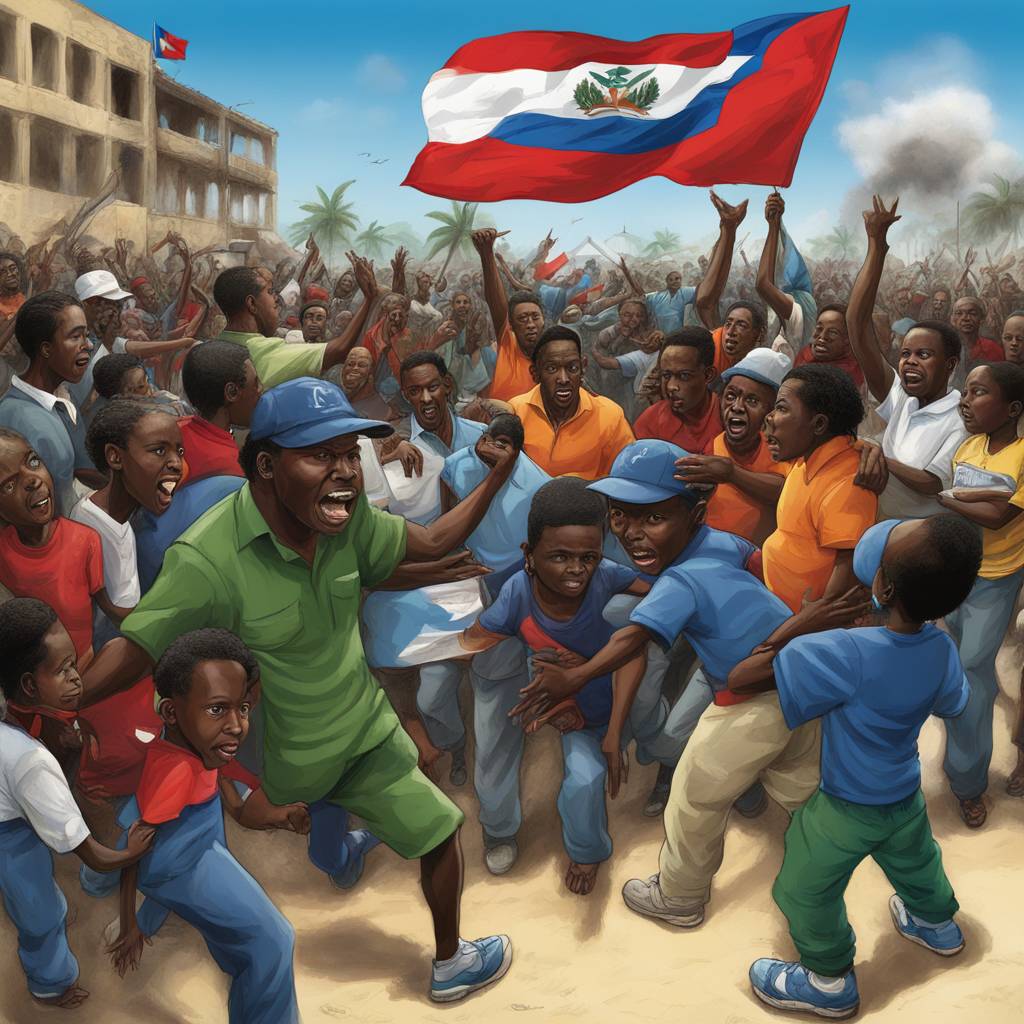Johnny Celestin, a native of Haiti, believes in the agency of the Haitian people to re-establish order in their country, despite the heightened violence from armed groups and gangs. However, with armed militias causing unprecedented instability following the assassination of President Jovenel Moïse in 2021, Celestin and others acknowledge that foreign intervention may be necessary to address the crisis. Previous attempts to find homegrown solutions, such as the formation of the Commission to Search for a Haitian Solution to the Crisis, have not been entirely successful, leading to current discussions about international support to overcome the political and humanitarian challenges facing Haiti.
While some Haitians are wary of foreign interference due to a history of negative experiences with interventions, others believe that international help is needed to address the violence and poverty plaguing the country. Monique Clesca emphasizes the importance of Haitians working with foreign partners on their own terms to retain their sovereignty and independence. However, scholars like Jemima Pierre have criticized previous foreign interventions in Haiti, asserting that such actions have perpetuated death and destruction in the nation rather than fostering lasting peace and stability. The ongoing debate over the need for foreign intervention reflects the complexity of the situation in Haiti and the diverse perspectives within the country.
Haiti’s troubled history with foreign intervention dates back to its independence in 1804, when France demanded reparations from the newly freed country, placing it in economic distress. Subsequent interventions by the U.S. and other powerful nations, including the invasion by U.S. Marines in 1915 and the removal of President Jean-Bertrand Aristide in 2004, have further destabilized Haiti. Criticism of the United Nations’ security efforts in Haiti, such as MINUSTAH, has raised concerns about human rights abuses and atrocities committed during these missions, exacerbating the challenges facing the country.
The current crisis in Haiti, exacerbated by the assassination of President Moïse and the rise of armed groups, has prompted calls for international intervention to restore order and address the growing violence. The delay in holding a presidential election and the unpopular interim leadership of Prime Minister Ariel Henry have fueled discontent among the population, leading to increased rebel activity. Despite the challenges, initiatives like Baskètbòl pou Ankadre Lajenès, founded by Dave Ali Fils-Aimé, aim to engage and support Haitian youth directly through programs like basketball, offering a grassroots approach to addressing the country’s social and economic issues.
While the debate over foreign intervention in Haiti continues, the need for collaboration between Haitians, foreign actors, and international organizations remains crucial to finding solutions to the country’s complex challenges. The history of external interference in Haiti underscores the importance of respecting Haitian sovereignty while also acknowledging the need for support in addressing current crises. As Haiti grapples with ongoing violence, political instability, and humanitarian concerns, a combined effort that recognizes and empowers the Haitian people may offer the best path forward towards lasting peace and development in the country.













